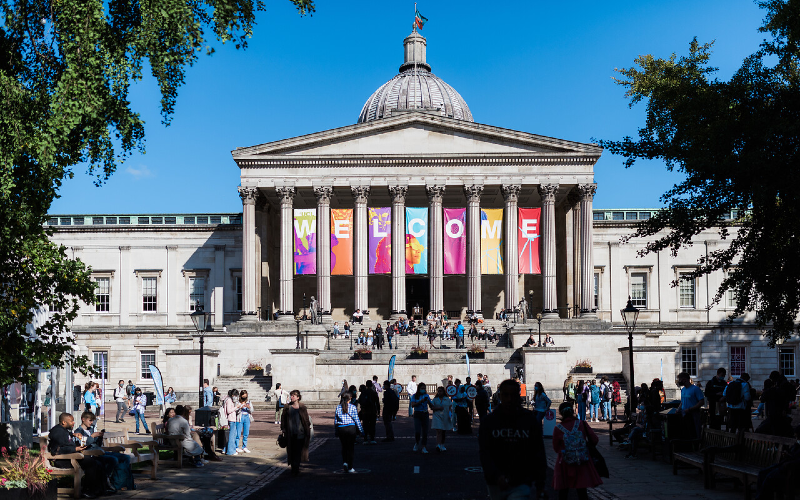Study in UK
|
About United Kingdom | Facts | Education System | Why United Kingdom? | Cost | Universities |
||||||||||||||||||||||||||||||||
The United Kingdom of Great Britain and Northern Ireland (commonly known as the United Kingdom, the UK, or Britain) is a sovereign state off the north-western coast of continental Europe. It spans an archipelago that includes the island of Great Britain, the northeastern part of the island of Ireland, and many smaller islands. Northern Ireland is the only part of the UK that shares a land border with another sovereign state—the Republic of Ireland. Apart from this land border, the UK is surrounded by the Atlantic Ocean, the North Sea, the English Channel, and the Irish Sea. |
||||||||||||||||||||||||||||||||
|
||||||||||||||||||||||||||||||||
|
3. Higher Education System:
Students normally enter University from 18 onwards and study for an Academic Degree. All undergraduate education outside the private University of Buckingham is largely state financed, with a small contribution from top-up fees. The state does not control syllabuses, but it does influence admission procedures. Unlike most degrees, the state still has control over teacher training courses, and uses Ofsted inspectors to maintain standards. The typical first degree offered at British universities is the Bachelor's degree (typically three years). Many institutions now offer an undergraduate Master's degree as a first degree, typically lasting four years. During a first degree students are known as undergraduates. The difference in fees between undergraduate and traditional postgraduate Master's degrees (and the possibility of securing LEA funding for the former) makes taking an undergraduate Master's degree as a first degree a more attractive option, although the novelty of undergraduate Master's degrees means that the relative educational merit of the two is currently unclear. Some universities offer a vocationally-based Foundation degree, typically two years in length for those students who hope to continue to take a first degree but wish to remain in employment. |
||||||||||||||||||||||||||||||||
|
UK universities provide internationally recognised qualifications of the highest standard. They also offer more opportunities than ever before: there are currently over 55,000 postgraduate taught courses and research opportunities to choose from on the Prospects database alone.
|
||||||||||||||||||||||||||||||||
|
In order to obtain a visa students must be able to prove that they (or their parents) have the funds to pay the full tuition fees, Accommodation and living costs for the duration of their course. Fees for international students vary greatly between institutions.
Here are some typical costs for living in UK:
|
||||||||||||||||||||||||||||||||
- Bangor University (Prifysgol Bangor)
- University of Bath
- Bath Spa University
- University of Bedfordshire
- Birkbeck College
- University of Birmingham
- Bishop Grosseteste University College Lincoln
- The University of Bolton
- Bournemouth University
- BPP College of Professional Studies
- University of Bradford
- University of Brighton
- University of Bristol
- Brunel University
- University of Buckingham
- Buckinghamshire Chilterns University College
- University of Cambridge
- Canterbury Christ Church University
- Cardiff University (Prifysgol Caerdydd)
- University of Central England in Birmingham
- University of Central Lancashire
- The Central School of Speech and Drama
- University of Chester
- The University of Chichester
- City University
- The College of Law
- The College of St Mark & St John, Plymouth
- Courtauld Institute of Art
- Coventry University
- Cranfield University
- University College for the Creative Arts at Canterbury, Epsom, Farnham, Maidstone and Rochester
- University of Cumbria
- University of Wales Lampeter
- University of Lancaster
- University of Leeds
- Leeds Metropolitan University
- University of Leicester
- University of Lincoln
- University of Liverpool
- Liverpool Hope University
- Liverpool John Moores University
- University of London
- London Business School
- London Metropolitan University
- London School of Hygiene and Tropical Medicine
- London School of Economics and Political Science
- London South Bank University
- Loughborough University
- University of Reading
- The Robert Gordon University
- Roehampton University
- Royal Academy of Music
- Royal Agricultural College
- Royal College of Art
- Royal College of Music
- Royal Holloway and Bedford New College (also known as Royal Holloway, University of London)
- Royal Northern College of Music
- The Royal Scottish Academy of Music and Drama, Glasgow
- Royal Veterinary College
- University of Salford
- School of Oriental and African Studies
- School of Pharmacy
- University of Sheffield
- Sheffield Hallam University
- University of Southampton
- Southampton Solent University
- University of St Andrews
- St George's Hospital Medical School
- St Mary's University College
- Staffordshire University
- University of Stirling
- University of Strathclyde
- University of Sunderland
- University of Surrey
- University of Sussex
- Swansea University (Prifysgol Abertawe)
About UK | Facts | Education System | Why UK? | Cost | Universities


